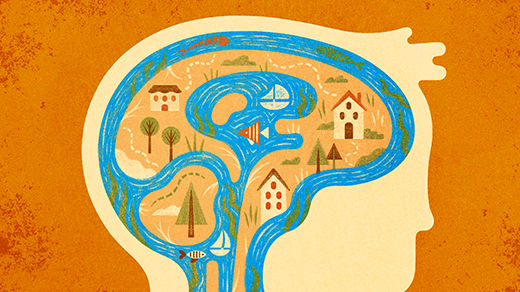Latest Articles
The Mysterious Flow of Fluid in the Brain
A popular hypothesis for how the brain clears molecular waste, which may help explain why sleep feels refreshing, is a subject of debate.
The Ocean Teems With Networks of Interconnected Bacteria
Nanotube bridge networks grow between the most abundant photosynthetic bacteria in the oceans, suggesting that the world is far more interconnected than anyone realized.
The Physics of Cold Water May Have Jump-Started Complex Life
When seawater gets cold, it gets viscous. This fact could explain how single-celled ocean creatures became multicellular when the planet was frozen during “Snowball Earth,” according to experiments.
The Mystery of the Missing Multicellular Prokaryotes
Why have bacteria never evolved complex multicellularity? A new hypothesis suggests that it could come down to how prokaryotic genomes respond to a small population size.
Cellular Self-Destruction May Be Ancient. But Why?
How did cells evolve a process to end their own lives? Recent research suggests that apoptosis, a form of programmed cell death, first arose billions of years ago in bacteria with a primitive sociality.
Evolving Bacteria Can Evade Barriers to ‘Peak’ Fitness
Paradoxically, natural selection can sometimes seem to block organisms from evolving useful adaptations. But a new study of “fitness landscapes” and antibiotic resistance in bacteria shows that life still finds a way.
In Our Cellular Clocks, She’s Found a Lifetime of Discoveries
For decades, Carrie Partch has led pioneering structural research on the protein clockwork that keeps time for our circadian rhythm. Is time still on her side?
‘Species Repulsion’ Enables High Biodiversity in Tropical Trees
Because tree seedlings don’t grow as well when close to their parents, more tree species can be packed into tropical forests.
Andreas Wagner Pursues the Secrets to Evolutionary Success
Why did mammals, grasses and some other groups of organisms explode in diversity only after millions of years? The evolutionary biologist Andreas Wagner plumbs the secrets of those “sleeping beauties.”









